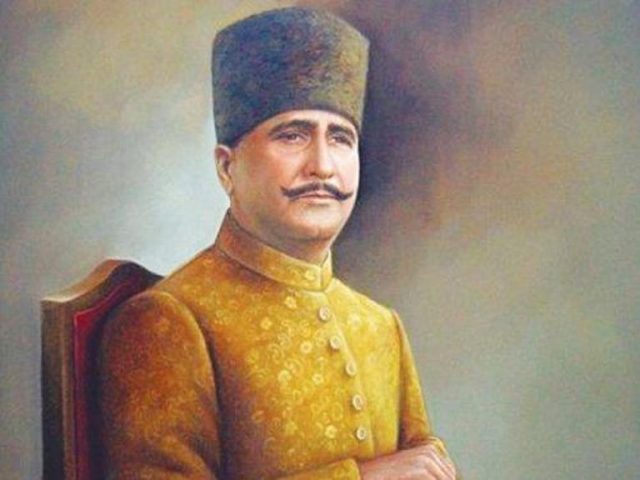The search for rational foundations has begun with the Prophet himself, when he prayed, “God! Grant me knowledge of the ultimate nature of things!”

It seems that Iqbal takes modern science and philosophy much more seriously than only as a means of justifying his ideas. Reflecting on the modern development of science and technology, he even takes it as an indication that the intellect of man seems to have outgrown its own most fundamental categories. Yet of this very important development of human knowledge, Muslims seem to be not aware; the philosophical thinking in Islam has stagnated.
Another important thing to note is Iqbal’s remark about the need to give rational foundation to religion. In the case of Islam, the search for rational foundations, according to Iqbal, has begun with the Prophet himself, when he prayed, “God! Grant me knowledge of the ultimate nature of things!” Iqbal not only urges the reconciliation between religion and science, but construes them as complementary to each other.
There is one more thing worth-mentioning here in relation to Iqbal’s attitude toward (Western) science and philosophy, as well as knowledge from other civilizations. He regards them not something alien to Islam. Often he simply calls them “human knowledge’ which means that it is universal in the sense that, in terms of knowledge they belong to the whole human race; every people have their own share in it. In the pursuit of truth, every man has the same goal to achieve, and the same problems to overcome.
A striking point in Iqbal’s reconstruction that would not escape our attention is the keen observance he gives to modern science. This is actually a characteristic present in many Muslim thinkers – since about the second half of last century. There are at least two reasons for this: firstly, the colonization of many Muslim lands by western countries, which are identified as advanced countries in terms of science and technology. Politically, economically, and culturally as well, this had left very deep impacts. Secondly, the remarkable development of modern science and technology since, at least, the seventeenth century. Especially given the dramatic development of modern science in the last few centuries, and which reaches its peak in this century, no one would find this attention uncommon.
Concerning Iqbal’s Reconstruction, Fazlur Rahman observes that Iqbal’s aim was the reawakening of the stagnant Muslim community of his time. And to achieve that aim, on one hand, he “did not carry out any systematic inquiry into the teaching of the Qur’an but picked and chose on its verse – as he did with other traditional material – to prove certain theses at least some of which were the result of his general insight into the Qur’an but which, above all, seemed to him to suit the most contemporary needs of a stagnant Muslim society.”
On the other hand, he criticizes Iqbal’s attempts as very much dated, “Since he took seriously his contemporary scientists who tried to prove a dynamic free will in man on the basis of the new sub-atomic scientific data, which they interpreted as meaning that the physical world was ‘free’ of the chain of cause and effect!” Indeed, Rahman admits that in modern times the Reconstruction is the only systematic attempt at building an Islamic metaphysical system.
From a very different point of view, S.M. Naquib al-Attas’s criticisms of Iqbal also end up in his rejection of the term “reconstruction”. He sees that the reconstruction is basically an attempt at a reasoned simplification of the Sufi method of approaching a complex vision of the nature of reality, and that Iqbal could never have formulated his philosophy without sufficient knowledge of Sufi theology, psychology, and metaphysics.
Even though Rahman and al-Attas reject the term “reconstruction”, which is implied by their rejections of some of Iqbal’s evaluations of Islamic intellectual tradition and modern science and philosophy, there is one important point on which all of them agree. Namely, that there is today a need for stating Islamic metaphysics in the “modern” language, that is to say, the language familiar to Muslims living in this modern world; a language which is very much colored by modern scientific-philosophical theories. In other words, this is a problem of communication.
In his Reconstruction Iqbal has tried to meet this challenge of communicating Islamic metaphysics, as he understood it, to the modern society who had been “influenced by modern philosophy”. However, it seems that there are still some problems here, especially regarding the terminology he used. But, to do justice to Iqbal, we should also remember that his Reconstruction was one of the first attempts at expressing Islamic metaphysics in a modern language; even today merely translating an Islamic metaphysical work into a modern European language remains problematic. The difficulties faced by Iqbal should, therefore, have been greater.
In the beginning of this essay we characterized the Reconstruction as Iqbal’s attempt at facing the problem of modernity; we also said that his problem arose as a result of the unavoidable direct contact with modern, western civilization. In the last few decades of the so-called post modernity, the contact intensifies greatly through many kinds of media. In any case there is no choice except to face it. Seen in this perspective, Iqbal’s deliberation of bringing Islamic metaphysics into contact with modern science and philosophy, which he regards simply as “human knowledge” (p. xxii), was natural.
Today we are in a better position to do efforts such as Iqbal’s reconstruction, since, firstly, there have been increasingly many works addressing the problem Iqbal tried to solve, whether they are in the context of Islam or not, and-thus the subtlety of this problem has become more manifest. And, secondly, we also have a better access to our own intellectual tradition, thanks to the scholarly efforts of many Muslim scholars as well as orientalists.
Above all criticisms of him, Iqbal had, given a starting point from which the pursuit of the solution of this problem might proceed. As response to the problem, we may say that Reconstruction was among the first serious works devoted to answering this problem – the one that is genuine and, in many ways, still fares much better than many of the works of today’s Muslims scholars. (MK)
End.
Before:
Notes:
The parts on Iqbal’s Reconstruction in this article is mainly based on Iqbal’s Method of Reconstruction by Zainal Abidin M. Baqir, published in Iqbal Review, Special Edition, October 1996 and will be republished in this website later on.




